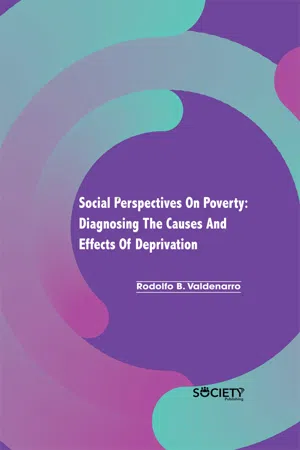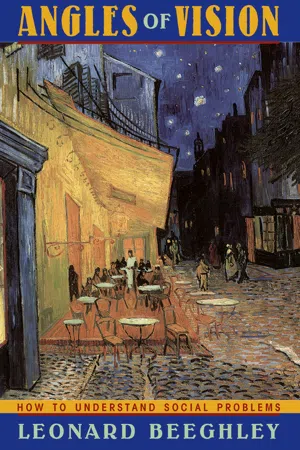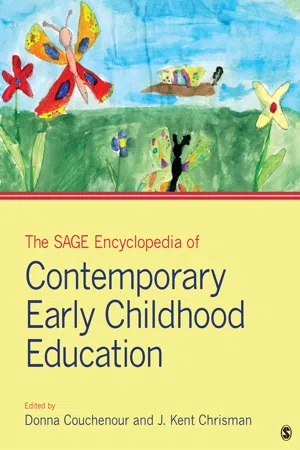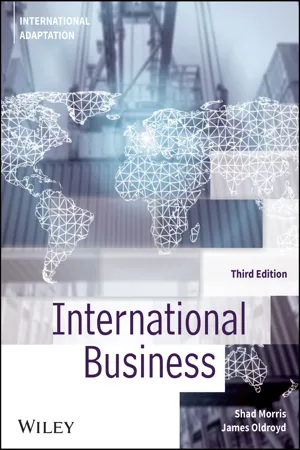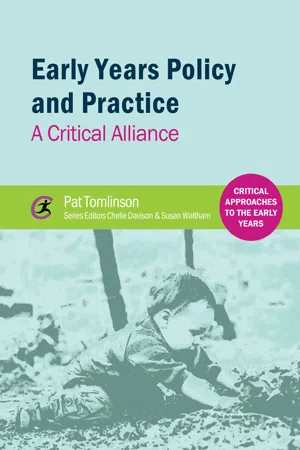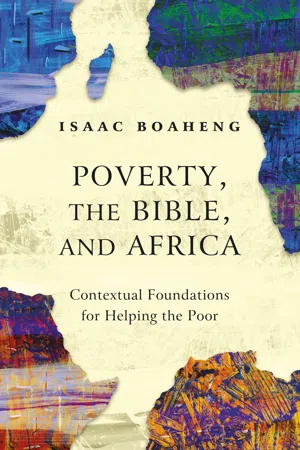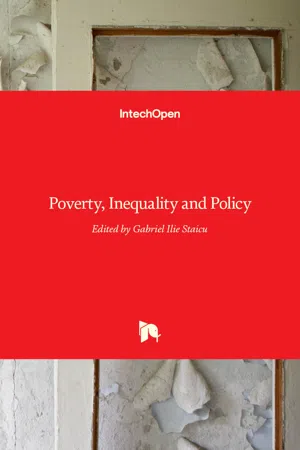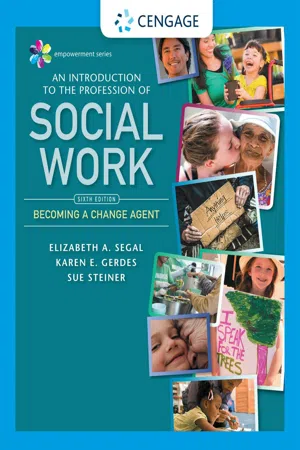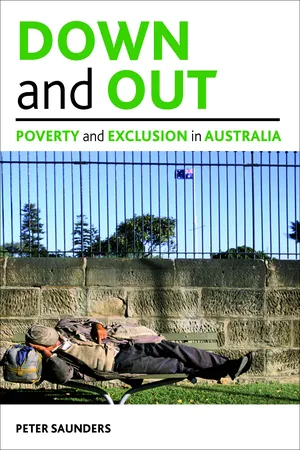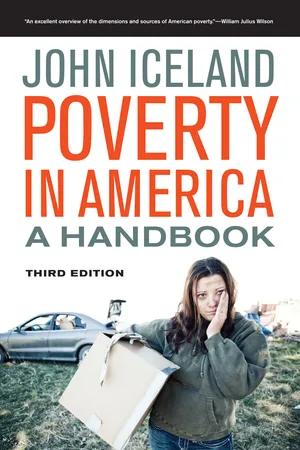Social Sciences
Consequences of Poverty
The consequences of poverty encompass a wide range of social, economic, and health-related impacts. These may include limited access to education and healthcare, higher rates of crime and violence, and increased vulnerability to environmental and natural disasters. Poverty can also perpetuate intergenerational cycles of disadvantage, affecting individuals, families, and communities.
Written by Perlego with AI-assistance
Related key terms
1 of 5
12 Key excerpts on "Consequences of Poverty"
- Rodolfo B. Valdenarro(Author)
- 2020(Publication Date)
- Society Publishing(Publisher)
Also, Children are impacted by numerous processes. In addition to the direct impacts of lack of resources and other risk factors related to poverty, there are likewise negative impacts of guardian conduct, including harsh parenting or inconsistent caregiving, leading to more disorganized behavior of the child. The cycle proceeds as guardians respond to their children’s progressively difficult to handle behaviors. 6.3. EFFECTS OF POVERTY ON SOCIETY In the end, poverty is a significant reason for social tensions and threatens to divide a country due to the issue of inequalities, specifically income disparity. This happens when a country’s wealth is distributed poorly among its citizens. In other words, when a tiny minority has all the money. The component of a developed or rich nation, for instance, is the presence of a middle class; however, as of late we have seen even Western nations gradually losing their middle class, thus the expanding number of clashes and riots. In a society, poverty is a perilous factor that can destabilize the whole nation. Another good example is the Arab Spring, in All the Nations concerned, the revolts began due to the lack of jobs and high-power levels. This has led to the overthrown of various governments. Influence of Poverty: An Overall Perspective 153 Figure 6.4: Unemployment leads to poverty. Source: Image by px here. 6.3.1. The Impact of Poverty on Family Life and Parenting Individuals living in low income families were suffering from a range of drawbacks including poor diets, poor housing, poor health, severe labor market problems, and financial exclusion. These issues recognized by Kempson in the year 1996, are still capably present in guardians’ accounts of low-income family life in the period of this review.- eBook - ePub
Angles Of Vision
How To Understand Social Problems
- Leonard Beeghley(Author)
- 2018(Publication Date)
- Routledge(Publisher)
The long-term impact of hunger is devastating, especially for children. Physicians in low-income areas commonly see 6-year-old kids who look 3 (Brown and Pizer, 1985). They display slow growth and mental deficiencies as a result of hunger. Put simply, children become stupid because they have not had enough to eat during the first years of life. They never recover. Malnourishment makes people more susceptible to disease and less capable of recovering. This is important because many common illnesses have a long-term impact. For example, if strep throat, a typical childhood disease, is not treated with antibiotics, it can lead to heart and kidney damage. The result is a sickly adult who is less productive. A nutritious diet can help prevent strep. Again, the long-term impact of hunger redounds to affect the entire society.In addition to homelessness and hunger, a glance at the topics covered in this book indicates some of the Consequences of Poverty. All of these findings are empirical generalizations:Compared to the nonpoor, (1) poor women are more likely to lack access to birth control, become pregnant, and give birth or obtain abortions; (2) poor people are more likely to use drugs and less able to obtain treatment; (3) poor people are more likely to commit and be victims of homicide (and other crimes); and (4) poor people have less access to medical treatment, worse health, and shorter life spans.These considerations, which do not exhaust the impact of poverty, suggest the importance of social class in modern societies: The lower the social class, the fewer the choices people have and the less effective they are in solving personal problems (Beeghley, 1996a).How do individuals like the Hilliards end up in a situation of limited choices? The angle of vision implied by this question applies a basic sociological orientation to understanding impoverishment: Individuals act on and react to the situations in which they find themselves. It lowers the possibility for self-deception and provides a clear, if cynical, view of U.S. society. It makes the unfamiliar familiar.Individuals and Poverty
Most people in this country work hard and strive to succeed. And in most cases they survive. Poverty when it occurs, is short-term. Even so, getting out of poverty rarely brings economic security, since any unexpected drop in income leads back into it. The specter of hunger or homelessness is never far away. Most people simply hope for the best, in spite of characteristics that make th em prone to poverty. - Donna Couchenour, J. Kent Chrisman, Donna Couchenour, J. Kent Chrisman(Authors)
- 2016(Publication Date)
- SAGE Publications, Inc(Publisher)
Poverty Effects Poverty EffectsHeather Biggar Tomlinson Heather Biggar Tomlinson Tomlinson, Heather Biggar1040 1048Poverty Effects
Poverty reflects not only lack of material assets, but also a lack of social capital—a sense of belonging, cultural identity, respect, dignity, and access to information and education. Of approximately 2.2 billion children in the world, one billion live in poverty. Poverty among children is not confined to children in the developing world; some economically advanced countries also have high numbers of poor children. Among economically advanced countries, the United has the second highest percentage of children (22% of all children and 25% of children under 6 are poor; Romania has the highest percentage). Regardless of geography, the effects of poverty generally remain the same: higher mortality rates and detrimental child outcomes. Yet children do not necessarily experience the effects of poverty in the same ways or to the same degree; the effects depend on exposure to risks, individual variation, and exposure to protective factors. This entry examines some of the factors that determine whether poverty will impact a child and if so, to what extent. In addition, this entry examines the many short- and long-term effects that poverty can have on a child, including but not limited to physical, emotional, and cognitive impacts.Factors Influencing the Effects of Poverty
The effects of poverty are difficult to determine and occur at both neural and behavioral levels. Moreover, the breadth, depth, and longevity of the effects are not the same for all children. However, it is clear that poverty is harmful to children, affecting both immediate and future functioning negatively across all domains of development and measures of achievement. There are a number of factors in a child’s constellation of poverty.Cumulative Risks
The more risk factors to which a child is exposed, the more the child’s development is compromised. Although intensity of risks also matters, aggregate number of risks matters more. For example, being a child soldier even briefly is a high-intensity risk factor, but the number of war trauma incidents experienced predicts mental health problems more closely than categorical exposure. Likewise, a child who loses a parent and- Shad Morris, James Oldroyd(Authors)
- 2023(Publication Date)
- Wiley(Publisher)
In the developing world, many social factors can contribute to poverty, including limited access to credit and capital markets, extreme environmental degradation, lack of public health care, poor infrastructure, and war. 5 For example, the coronavirus (COVID-19) crisis forced nearly 50 million people into extreme poverty, most of whom were found in rural areas of countries with limited access to health services, insurance, banking services and in places where people often depend on family members in urban areas to send money home. One study showed that families in rural villages in China experienced losses averaging $282–704 per month after the crisis. Villagers reduced their spending on food as a result, which had a significant impact on nutrition and long-term human development. 6 The Poverty Trap Most notable is that the poor generally have fewer resources—for health, education, nutrition, and hope. Increased resources can be a way out of poverty; without it, the poor are often con- sidered to be “trapped” in poverty or in a poverty trap. As Nobel Prize–winning economist poverty trap an economic condition in which it is difficult for an individual to obtain enough capital and/or credit to escape poverty; it causes poverty to persist and is also called the “cycle of poverty” Chip Somodevilla/Getty Images FIGURE 10.2 Poverty in South Africa The poor in South Africa live in overcrowded conditions which often lack basic standards of hygiene and can become breading grounds for disease. 10.1 Causes and Consequences of Global Poverty 213 Amartya Sen points out, poverty deprives individuals of key capabilities, limiting their ability to achieve and earn, thus keeping them poor and limiting their opportunities to increase their capability. For the very poor, the rate of return from investing in food, education, or a business is so low that, given their resources, they cannot improve their circumstances. As a result, they remain poor and trapped in poverty.- No longer available |Learn more
Early Years Policy and Practice
A Critical Alliance
- Pat Tomlinson, Chelle Davison, Susan Waltham, Chelle Davison, Susan Waltham(Authors)
- 2013(Publication Date)
- Critical Publishing(Publisher)
It matters especially in utero and to very young children as the consequences influence what happens for the rest of their lives. The dynamics of poverty are multidimensional and the effects are most intense when poverty is chronic but also when experienced in the early years of life (Brooks-Gunn and Duncan, 1997). 124 • Early Years Policy and Practice Definitions of poverty and critical debate There is no single definition of poverty and certainly no universally accepted one. On a sim- ple level poverty is defined by income which, until recently, was the prevailing perspective. The large and emotive international appeals by UNICEF and a number of NGOs of the late twentieth century epitomised by swathes of the population across whole continents existing on less than two dollars a day have been superseded by more sophisticated concepts of poverty. Absolute poverty However, the notion of absolute poverty is hard to dispute. It has dire consequences for very young children, often resulting in infant mortality or chronic disease and disability. It leaves children vulnerable to the vagaries of decisions and actions way beyond family influence due to natural strife, corporate and political indifference or corruption and national and interna- tional conflict. It puts pressures on families that undermine their ability to feed, clothe, shel- ter and care for their offspring. It is often endemic, for example stunting, or stunted growth, and results in chronic nutritional deficiencies during pre-birth and the first two years of life. Stunting results in limited bone growth and impaired brain development and is irreversible. It affects some 180 million children across 21 countries (Lake, 2012). For the growing numbers of urban poor, as previously rural populations move to expand- ing cities and towns, the deprivations of poverty are immense. UNICEF estimates that the world’s urban population increases by 60 million every year. - eBook - ePub
Poverty, the Bible, and Africa
Contextual Foundations for Helping the Poor
- Isaac Boaheng(Author)
- 2020(Publication Date)
- HippoBooks(Publisher)
[13]The Social Exclusion Approach
The social exclusion approach is the third perspective on understanding poverty. The social exclusion that poverty brings may be in the form of “either economic dimension (exclusion from the labor market opportunities to earn income) or a purely social dimension (exclusion from decision-making, social services, and access to community and family support).”[14] This approach to poverty emerged in France in the 1970s and 1980s as a means of explaining the precarious situation of the disadvantaged and marginalized due to their inability to take part in the major economic, political, and social enterprises.[15] The meaning of the expression “social exclusion” has metamorphosed over the years.[16] In the 1970s many people became unemployed due to decline in business activities. In such a context, the term exclusion was used to denote the process that led to the expulsion of people from the job market. In the 1990s, prevalent human rights issues led to defining “excludees” as those who are “partly or completely outside the effective scope of human rights.”[17]The social exclusion approach differs from the economic and capability deprivation approaches in that the latter focus on individual characteristics and circumstances while the former shifts attention to the relational quality of life (its social dimension). According to the exclusion approach, one may have high income and still be poor if there is lack of social order and hence, insecurity in the community. Moreover, the analysis of exclusion involves the study of societal structure and the conditions of the marginalized groups, such as minority groups and the landless. Social exclusion therefore involves cultural, institutional and social dimensions, which are absent in the first two approaches. It advocates for the need to redistribute opportunities and resources in order to improve the lives of the marginalized. - eBook - PDF
- Gabriel Ilie Staicu(Author)
- 2017(Publication Date)
- IntechOpen(Publisher)
In this respect, OXFAM [2] highlights the following causes of inequality: (i) large companies are at the service of the richest; (ii) capitalism stifles workers as well as small producers; (iii) tax eva ‐ sion and elusion; (iv) a short‐term vision of capitalism where the maximization of welfare is prioritized; and (v) governments rule for elites. Now, the persistence of poverty is explained by multiple causes such as insignificant provi ‐ sion of land, limited access to public goods and different forms of discrimination [ 12], inad‐ equate schooling [41], precarious social protection system [42], poor institutional structure, lack of opportunities, income inequality [43], chronic unemployment, inadequate access to markets that have the most disadvantaged populations [44], poor health, domestic and exter‐ nal factors, corrupt governments and elites, even the regime implemented by a State influ ‐ ences the persistence of poverty [45]. Once the causes of inequality and poverty are identified, it is pertinent to identify their consequences. In that sense, the main consequence of inequality is poverty, which in turn has consequences such as hunger, uncertainty, impotence, suicide, lack of voice, social iso‐ lation, resistance, deprivation, corruption, abuses of dignity, humiliation, lack of access to basic infrastructure, 14 dependency, begging, shame, illiteracy, disease, crime, households disintegration, 15 breach of social norms, creating disorder, and violence both at household level and at the regional and national level [46]. Therefore, the overcoming of both issues is in the field of design and implementation of social policies. This implies taking into account aspects related to the degree of access and control over economic and social assets such as education, health, taxes [47], labor, land, productive resources, social and civic participation, security and justice [31 ]. - Elizabeth Segal, Karen Gerdes, Sue Steiner, , Elizabeth Segal, Karen Gerdes, Sue Steiner(Authors)
- 2018(Publication Date)
- Cengage Learning EMEA(Publisher)
The “multiproblem” poor, it is claimed, suffer the psychological effects of impoverishment, the “culture of poverty,” and the deviant value system of the lower classes; conse-quently, though unwittingly, they cause their own troubles. From such a viewpoint, the obvious fact that poverty is primarily an absence of money is easily overlooked or set aside. (Ryan, 1976, pp. 5–6) Ryan argues that this is how Americans accept a society that rewards some people with good jobs, safe homes, and two-parent families while others do not receive benefits. If poverty is the fault of each poor person, then others do not need to examine the way income is earned or consider whether all peo-ple have the opportunity to acquire wealth. All efforts at fighting poverty are aimed at the individual rather than at changing the economic structure. The system’s role never gets addressed, and systemic inequality continues genera-tion after generation. Copyright 2019 Cengage Learning. All Rights Reserved. May not be copied, scanned, or duplicated, in whole or in part. Due to electronic rights, some third party content may be suppressed from the eBook and/or eChapter(s). Editorial review has deemed that any suppressed content does not materially affect the overall learning experience. Cengage Learning reserves the right to remove additional content at any time if subsequent rights restrictions require it. POVERTY AND ECONOMIC DISPARITY 77 In addition, social stigma and blame enter deeply into the personal being of people who are poor. Poor people internalize this blame from a very young age, and this factor can be a challenge for social workers who try to help peo-ple move out of poverty (Ryan, 1976). The challenge is how to address inter-nalized blame (see Boxes 3.2 and 3.3).- Gottfried Schweiger, Gunter Graf(Authors)
- 2015(Publication Date)
- Springer Open(Publisher)
They let children down on their justified claims to well-being and well-becoming and deprive them of a fertile functioning, which in turn affects the achievement of other important functionings and capabilities. One might counter our conclusion about the relation between health and poverty by pointing to parents and families, shifting the blame from the institutional design of society to them. They choose to live under such circumstances and bring children into the world, and they do not move to better neighborhoods, give them better food and care or take them to regular medical checkups. Child poverty is, indeed, in most cases also family poverty (important exceptions are orphans in state care and unattended minor refugees) and the parents’ living conditions and socioeconomic status do have significant influence on their children. We will address this issue in the next chapter, where we will analyze the role of close caregivers and their responsibilities toward children in some detail and refute the argument that parents and families are the primary agents for securing social justice for children. For now, we would like to point to the fact that parents and families in poverty usually have very limited options to influence the health of their children due to struc-tural deficiencies, a fact that is to be taken into account when conceptu-alizing their responsibilities. Parents’ behaviors are partially determined themselves by socioeconomic position and how one grows up and is socialized, a claim supported by considerable evidence (Pinderhughes et al. 2001; Russell, Harris and Gockel 2008). 2.3 The Ill-Being and Ill-Becoming of child poverty: social inclusion and education The next two functionings we would like to explore are social inclu-sion and education.- eBook - PDF
Down and out
Poverty and exclusion in Australia
- Saunders, Peter(Authors)
- 2011(Publication Date)
- Policy Press(Publisher)
237 TEN Conclusions and implications Introduction Social disadvantage has many manifestations and can only be adequately captured using multi-dimensional indicators. This is the central message to emerge from recent research on poverty and disadvantage and has shaped the research reported in previous chapters. Why not dispense with quantification altogether? If the problems are so difficult, yet so fundamental, would it not be better to avoid measurement and focus instead on understanding how examples of disadvantage arise and are perpetuated in specific instances and deal with them in ways that are appropriate to the circumstance? These questions raise important issues about the nature of social science research and its relation to policy that are the focus of this concluding chapter. Discussion begins with a brief overview of the main findings reported earlier. This is followed by a discussion of some of the implications for policy, and for future research on aspects of social disadvantage, including the ways in which research findings are reported and disseminated, as well as for data collection and for how researchers and policy makers can better communicate with each other. Much of the discussion focuses on the key issue of communication – how can research findings be conveyed to the right audiences in ways that promote understanding of their relevance and value to potential users. Central to this task is ensuring that research not only has the academic qualities and content that make it relevant to policy and practice, but also that it can encourage a dialogue between researchers, practitioners and policy makers that can influence action. This book started by citing the problems facing Leah/Lucky, a young woman who was facing many forms of disadvantage that had overwhelmed her, left her alienated and marginalised and prevented her from participating fully in her society. - eBook - PDF
- Craig Calhoun, Chris Rojek, Bryan S Turner, Craig Calhoun, Chris Rojek, Bryan S Turner(Authors)
- 2005(Publication Date)
- SAGE Publications Ltd(Publisher)
For instance, children who experience prolonged spells of poverty or severe poverty show larger deficits in cognitive ability and socio-emotional develop-ment than children who only experience less severe poverty or poverty for a short period of time. (For a dis-cussion of poverty and children’s outcomes see Aber et al., 1997; Duncan and Brooks-Gunn, 1997; Duncan et al., 1998; Smith and Dixon, 1995). 6 Making this difference in wealth levels all the more significant is the fact that Conley (1999) has found that family (parental) wealth is a strong predictor of teenage and young adult outcomes ranging from teenage premari-tal childbearing to educational attainment to welfare dependency to filial wealth accumulation. In many cases, when parental wealth is taken into account, black–white differences are eliminated or even flip direction. While parental wealth is just beginning to become taken into consideration in intergenerational studies, it has been neglected in the race, Socio-economic status (SES) and child outcomes literature. 7 For a discussion of this see Iceland (2003). 8 Adrian Atkinson (1987) makes a similar distinction between measures of a minimum level of resources versus a minimum standard of living. 9 In fact, in the UK Patrick McGregor and Vani Borooah (1992) find that two substantially different sets of people are identified as poor depending on what conception is used. 10 Their list of 20 is based on the work of Joanna Mack and Stewart Lansley (1985), who sought to develop a depri-vation scale. 11 His scale is much simpler than earlier versions which were developed by the Organization for Economic Co-operation and Development (OECD), the United Nations and the United Nations Research Institute for Social Development (UNRISD), but which later floun-dered under the political weight of their own complexity. 12 Even with these relatively straightforward measures, there is a degree of cultural difference in how they are mea-sured. - eBook - PDF
Poverty in America
A Handbook
- John Iceland(Author)
- 2013(Publication Date)
- University of California Press(Publisher)
79 chapter 5 Causes of Poverty It is commonly believed that individual failings or wayward values propel people into poverty. In the 1960s, anthropologist Oscar Lewis wrote, “By the time slum children are age six or seven they have usually absorbed the basic values and attitudes of their subculture and are not psychologically geared to take full advantage of changing conditions or increased opportunities which may occur in their lifetime.” 1 When asked about causes of poverty, about half of Americans say that poverty is the fault of individuals, while nearly the same proportion feel that circumstances play the principal role. Affluent people are more likely to believe that poor people are not doing enough to help themselves, while the poor are more likely to point to circumstances. About two-thirds of Americans believe that the poor have the same values as other Americans, and about a fifth think they have lower moral values. 2 Economists often focus on individual traits by emphasizing the role of human capital in people’s economic well-being. Human capital refers to people’s knowledge, skills, personality, and experiences that help them do a job well. Many studies have indeed shown that people who invest in their education and skills can expect higher incomes. However, this emphasis on individual characteristics as the main determinant of poverty often overlooks the roles that social, economic, and political systems play in affecting people’s well-being. 3 In this chapter I discuss the underlying structural cause of poverty, including why poverty is more prevalent among some groups than others. I begin with a brief 80 | Causes of Poverty discussion of general sociological theories of social stratification. I then examine the role of the economy and low-wage work in explaining pat-terns of poverty, analyze changing patterns of racial and ethnic stratifi-cation, and, finally, discuss gender norms, family structure, and culture and their impact on poverty.
Index pages curate the most relevant extracts from our library of academic textbooks. They’ve been created using an in-house natural language model (NLM), each adding context and meaning to key research topics.
